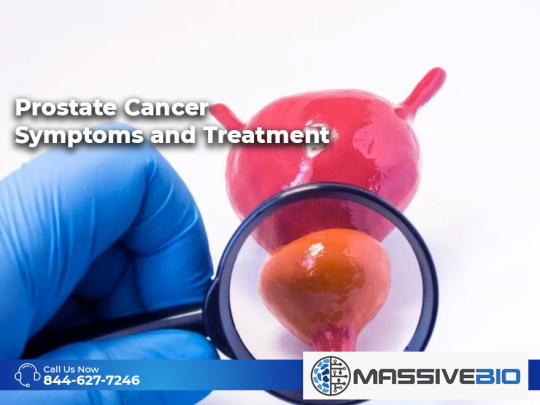What are prostate cancer symptoms and treatment? Prostate cancer begins in the prostate gland when cells start to overproduce. The prostate gland is only found in males. It is important for men to understand the symptoms of prostate cancer in order to determine if they need to be seen by a doctor. Most types of prostate cancers are adenocarcinomas, meaning that the cancer develops from gland cells. Other types of prostate cancer include small cell carcinomas, neuroendocrine tumors, transitional cell carcinomas, and sarcomas.
What are Prostate Cancer Symptoms and Treatment?
Prostate cancer is most often found in the early stages during screening. Symptoms are not often present at the time of diagnosis. Advanced prostate cancer is often discovered due to the presence of symptoms, such as:
- Difficulty urinating
- Blood in the urine or semen
- Erectile dysfunction
- Pain in the hips, back, chest and other areas once the cancer has spread
- Weakness and/or numbness in the legs and feet
- Loss of bladder and/or bowel control
Prostate Cancer Diagnosis and Grading for Treatment
The prostate-specific antigen (PSA) blood test can be helpful in diagnosing men with prostate cancer. A PSA measures the levels in the blood. There are guidelines to determine if a man may have prostate cancer or needs further testing such as a prostate biopsy:
- PSA levels under 4 ng/mL are normal
- PSA levels between 4-10 ng/mL have a 25% chance of being diagnosed with prostate cancer
- PSA levels greater than 10 ng/mL have greater than a 50% chance of being diagnosed with prostate cancer
If a prostate biopsy is performed and a diagnosis is confirmed, the Gleason system is used to assign a grade in order to determine the severity of the cancer.
Prostate Cancer Treatment
Prostate cancer treatment depends on the specific case of each patient with prostate cancer. Considerations include:
- The stage and grade of the cancer
- The age and life expectancy of the patient
- Other health conditions
- Feelings toward treatment
- Prognosis after treatment
Treatment options:
- Observation or Surveillance for early stages
- Surgery
- Radiation Therapy
- Cryotherapy
- Hormone Therapy
- Chemotherapy
- Immunotherapy
- Targeted Therapy





2 Comments
I’m 75 and its been a year since my radiation treatment of 45 days. My PSA has dropped from 18 to 1. It’s all great but my strength is gone. I’ve tried walking 2 miles every other day without any great results. Any ideas? Dave
Fatigue and weakness are very common for cancer patients who are receiving radiation therapy. It can also worsen as treatment continues. This type of fatigue and weakness can last a while, but it will generally go away over time. Since your symptoms do not seem to be improving, it is important to speak with your care provider so that he or she can evaluate what is going on and come up with a plan of care to help improve your quality of life.